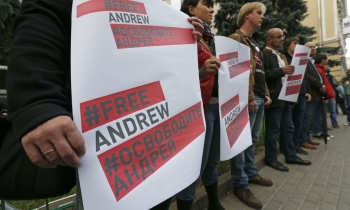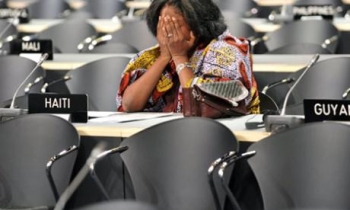The ongoing conflict between journalists and newspaper employers has intensified with the Swedish Newspaper Publishers' Association (Tidningsutgivarna - TU) extending its proposed lockout to include staff at web publications. Around 100 newspapers have been affected already by the dispute.

As things currently stand, a swift resolution seems increasingly unlikely, the Local has reported. The Swedish Journalists' Union (Svenska Journalistförbundet - SJF) has said it wants to negotiate directly with TU. The employer's association for its part would prefer to keep the mediators in the loop.
"We can't resume our mediation if neither party wants us to get things going. On SJF's website they say that they don't want to meet with us, or at least that they would prefer to reach an agreement directly with the employers. We have nothing against that. We are not trying to block the party's from meeting each other. This is not a matter of prestige for us," one of the mediators, Rune Larsson, told news agency TT.
SJF has publicly criticised the mediators for not paying enough attention to their demands and for not grasping some central copyright issues that are of crucial importance to the union. "They can grade us however they like but we'll soon have been negotiating for six months. I don't accept the claim that we haven't understood that particular issue," said Larsson.
SJF's industrial action is scheduled to begin on August 30, acording to the Local. The union has said it will forbid journalists from placing new material on the internet, while texts that have already been published may not be changed or edited.
On Monday, TU announced a lockout of some 4,000 journalists. The move came three days after the launch of industrial action by SJF. TU's lock-out is aimed at journalists working at those newspapers targeted by SJF's overtime ban. The affected journalists are to be locked out of their workplaces on their days off, which - since they are paid the same daily rate regardless of whether they work or not - will result in a considerably smaller wage package at the end of the month, the Local said on Monday.
"We have just have one aim, which is to get the Swedish Union of Journalists to retract their conflict measures and contribute to the establishment of realistic conditions in which the mediators can reopen contract negotiations," said TU chairman Pär Fagerström in a statement.
The lockout is scheduled to begin at midnight on August 30. It will not affect journalists who are on holiday, on a leave of absence, or on sick leave.
The following day, SJF announced new strike measures designed to affect the web editions and advertising departments. The following terms were included in SJF's notice: no material is to be released to the web that has previously been published in the paper editions; there is to be a ban on all contact with advertisements or advertising pages; no material may be published that has not been produced by a newspaper's own employees.
The International Federation of Journalists (IFJ) and its European regional body the European Federation of Journalists (EFJ) have called for “global solidarity” with journalists in Sweden who have been forced into a battle with the country’s newspaper employers.

Arbitration has failed to revive stalled talks over a new collective agreement for some 5,500 newspaper and web journalists, IFJ reported. Newspaper owners across Sweden are trying to force journalists to sacrifice authors’ rights protection and have obstinately refused to entertain union demands for wage increases for all journalists, particularly for low-paid staff, and for greater employment protection.
“Journalists in Sweden now find themselves in the frontline of a major struggle in defence of decent work and employment rights,” said Aidan White, IFJ General Secretary. “Journalists across Europe and around the world recognise this is a fight in which we all have a vital interest. Swedish colleagues have our full support.”
SJF has triggered a ban on work beyond eight hours per day and 40 hours per week at 70 local newspapers. The ban will escalate in the coming weeks to cover about 100 newspaper companies, if no agreement with TU can be reached. Some 20 newspapers have also been told they will not be able to handle or process any material, text or images, not produced by their own editorial departments.
At the heart of the dispute are controversial publisher demands for journalists to waive their authors' rights. The union also wants wage increases, for all journalists but especially for some with very low wages in spite of long experience, and measures to counteract precarious employment.
“We said no in order to defend three prerequisites for good journalism – decent pay, secure employment, and authors´ rights,” said SJF Vice President Arne König.
IFJ says it will do everything it can to mobilise support for the Swedish colleagues. “This is a dispute that must be won,” said White. “We shall build global solidarity with the journalists in their fight for a fair and just settlement.”









